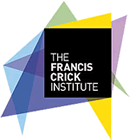About the Project
This 4-year PhD studentship is offered in Dr Johannes Kohl’s Group based at the Francis Crick Institute (the Crick).
Our goal is to understand how physiological states shape information processing in the brain. Instinctive behaviours such as aggression, feeding or parenting are orchestrated by evolutionarily sculpted neural circuits. Considerable progress has been made in deconstructing these circuits in recent years (e.g. Kohl et al, 2018a) and it has become clear that their function profoundly depends on the animal’s current physiological – i.e. reproductive, metabolic etc. – state (Kohl et al, 2017, 2018b). However, we know little about the circuit-level and cellular mechanisms by which internal states alter neural processing in vivo.
We are particularly interested in how flexible such circuits are, and how they interact to coordinate adaptive behavioural responses. Several possible projects are available within this framework, ranging from systems-level to cellular questions. Examples are (1) to investigate the circuit dynamics and mechanisms during switching between competing instinctive behaviours (e.g. parenting vs aggression), (2) to develop novel viral tracing approaches to investigate circuit anatomy & function, and (3) to characterise and manipulate hormonally induced gene expression changes in subcortical circuits. The exact project will be developed with the supervisor, depending on applicants’ interests and background.
This will be an exciting opportunity to use state-of-the-art systems neuroscience approaches – such as multi-site optical/electrophysiological recordings, behavioural profiling, optogenetics, viral tracing and (spatial) transcriptomics – to address fundamental questions in neuroscience. Please contact Dr Kohl to discuss further details.
Candidate background
Candidates should have a background in neuroscience, biosciences, engineering or a related field. We are looking for highly motivated and creative individuals that thrive in a collaborative setting. Since projects in the lab typically involve acquiring and analysing complex datasets, quantitative and programming skills are desirable.
Talented and motivated students passionate about doing research are invited to apply for this PhD position. The successful applicant will join the Crick PhD Programme in September 2021 and will register for their PhD at one of the Crick partner universities (Imperial College London, King’s College London or UCL).
Applicants should hold or expect to gain a first/upper second-class honours degree or equivalent in a relevant subject and have appropriate research experience as part of, or outside of, a university degree course and/or a Masters degree in a relevant subject.
APPLICATIONS MUST BE MADE ONLINE VIA OUR WEBSITE (ACCESSIBLE VIA THE ‘APPLY NOW’ LINK ABOVE) BY 12:00 (NOON) 12 November 2020. APPLICATIONS WILL NOT BE ACCEPTED IN ANY OTHER FORMAT.
References
1. Kohl, J., Babayan, B.M., Rubinstein, N.D., Autry, A.E., Marin-Rodriguez, B., Kapoor, V., . . . Dulac, C. (2018)
Functional circuit architecture underlying parental behaviour.
Nature 556: 326-331. PubMed abstract
2. Kohl, J., Autry, A.E. and Dulac, C. (2017)
The neurobiology of parenting: A neural circuit perspective.
Bioessays 39: 1600159. PubMed abstract
3. Kohl, J. and Dulac, C. (2018)
Neural control of parental behaviors.
Current Opinion in Neurobiology 49: 116-122. PubMed abstract
4. Allen, W.E., Chen, M.Z., Pichamoorthy, N., Tien, R.H., Pachitariu, M., Luo, L. and Deisseroth, K. (2019)
Thirst regulates motivated behavior through modulation of brainwide neural population dynamics.
Science 364: 253. PubMed abstract

 Continue with Facebook
Continue with Facebook

